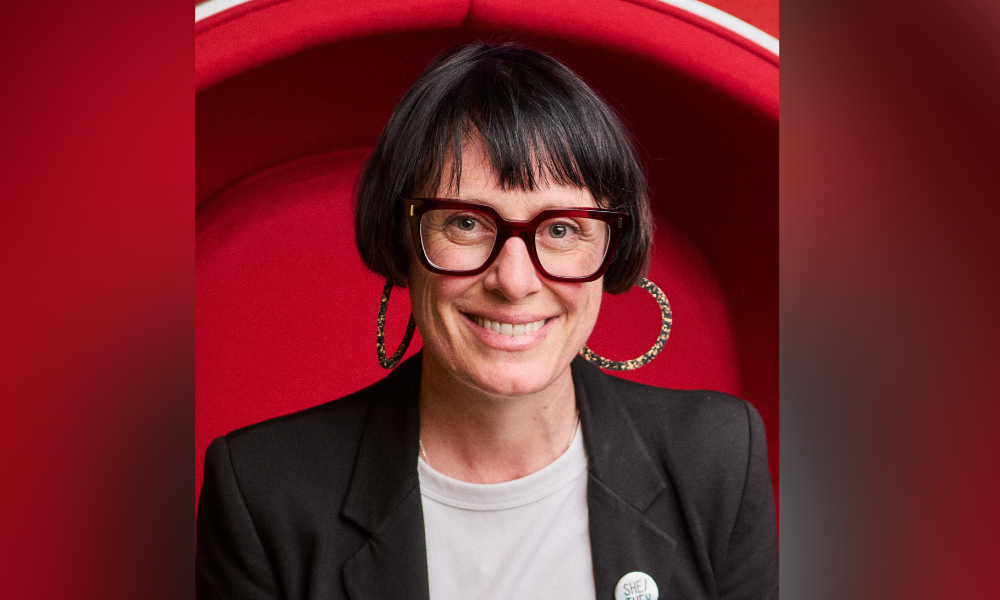
'There's no mould for the perfect person or the perfect candidate – so why try and make one?' says Chelsea Mannix of Funlab

With DEI programs under scrutiny in some sectors, one Australian company is doubling down. Chelsea Mannix, Chief People Officer at Funlab, says inclusion and accessibility remain top priorities—and essential to culture, engagement, and long-term performance.
“It’s non-negotiable. The workplace shouldn’t be somewhere you feel alone – that’s not fun for anyone. It’s about having a growth mindset and having the ability to see the bigger picture and with that comes accessibility and diversity. It’s a number one focus for a reason,” she told HRD.
“Everyone is different, and I think nowadays there’s no mould for the perfect person or the perfect candidate – so why try and make one? Accessibility is about bringing in a whole different point of view to daily operations and you can’t be successful if you can’t have that."
Close to one in three workers in Australia reported experiencing discrimination or harassment at work post-pandemic, according to Diversity Council Australia, with 42% of workers with a disability experiencing this in the last 12 months.
The Inclusion@Work Index report also found the highest rate of opposition in 2023/24, with 7% of the workforce now opposing or strongly opposing DEI action.
Funlab recently achieved B Corps certification, meeting the highest standards of social and environmental impact.
“We are so proud of the work we’ve done to date to support diversity and inclusion, and it’s our goal to continue to find new ways to grow and evolve in the space,” Mannix said, “The certification is a commitment to keep us in check, so we keep doing good while delivering awesome experiences.”
“We’ve always followed our ethos that the world is better when we fun together, and this stretches to every touch point of our organisation, from how we treat our employees to how we engage with our customers.”
Finding the right candidate to fill a role can be difficult – but according to Mannix, looking through resumes isn’t a problem as the company prioritises growth mindset and attitude over traditional credentials.
“Having a growth mindset is thrown around a lot – but if you’ve got a general desire, passion, and hunger to learn, that’s all you need. t’s not always about having qualifications. If you can do the job and are hungry to develop and be upskilled, there’s no reason why you can’t go all the way,” she says.
“The advantage we have is we can really bring people in at an entry level and teach them skills that they can use. We're not just teaching someone how to pour a beer or how to fix a game - we've got a whole addition to our culture which really emphasizes positivity and face to face engagement.”
It’s important to make sure everyone can access facilities in a building – and a company’s workforce should be the same, Mannix said.
The company – based in Abbotsford – has announced a number of accessibility initiatives such as launching sensory assistance times which include quieter music and softer lighting for those with sensory issues.
This is something, Mannix told HRD, that transcends the whole business and ensures everyone can be what they call a ‘motherfunner.’
“We serve – and employ - a younger workforce in our venues, which have their own expectations that already exist when it comes to equity and inclusion. It’s not about innovating the space but looking at ways you can improve.”
And data is the answer, she said.
“Diversity surveys, engagement surveys, whatever it is you have – update them and keep them fresh. You need to design them around people, not what you think people want. You want to understand hidden disabilities better and understand everything your cohort are thinking. You can’t do that in a vacuum."
Data is now at the forefront of people management – inverse to several years ago – and should be used to the advantage of businesses to create better working environments, according to Mannix.
“It can form decisions the executive team make, so there’s more collaboration there. It allows you to have visibility and multiple data sets to help inform the rest of your practice. It’s mandatory.”
Whilst DEI initiatives are being axed in some areas with some resistance, according to reports, Mannix says that DEI strategies succeed only with support from the top.
“Managers are busy. They've got a million things they don't need, so when you’re talking about employing a certain number of people, they must see the value in this themselves. When you’re hiring based on attitude over skills, for example, you’re breaking down the first barrier – because you’re not looking at physical capabilities or even where you went to school.”
“By educating managers,” she said, “HR’s job becomes easier because you’ve got buy-in from where it matters most. There’s value all around you — some people just need a little more help to see it.”